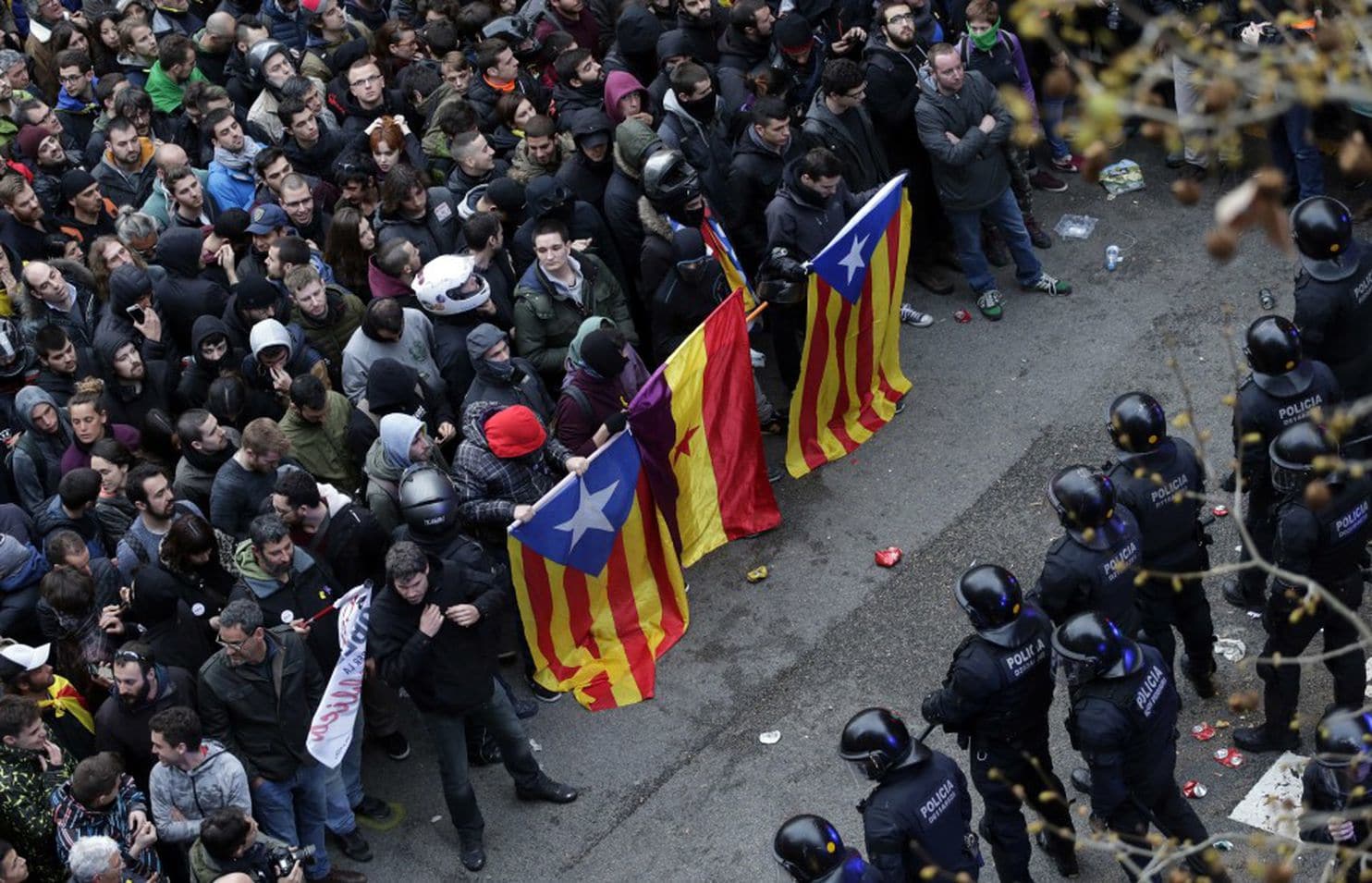What nation do you belong to? That has been up for discussion lately in Catalonia, Iraqi Kurdistan, Scotland and Puerto Rico, all of which have held referendums on sovereignty. German authorities detained former Catalan president Carles Puigdemont this past Sunday at Spain’s request because of his nationalism, leading to still more Catalan protests.
The issues on which such popular votes weigh in can range from autonomy for a small territory to the breakup of an entire nation — and other topics that touch on national sovereignty, including joining or leaving the European Union or NATO.
Certainly, debates over “ordinary” referendums can get pretty heated, whether Ireland’s and Australia’s recent votes on marriage equality or California’s and Massachusetts’s votes on marijuana policy. But the stakes are much higher in sovereignty referendums, which can even be accompanied by violence, as in Catalonia or Crimea.
[ The myth of massive support for independence in Catalonia ]
Here are seven things you should know about the rise of the sovereignty referendum, explored more fully in our recent article in the British Journal of Political Science.
1. Sovereignty referendums go way back.
In its modern variant, the sovereignty referendum was pioneered by Massachusetts in the spring of 1776, when the colony’s town halls voted on whether to support the Declaration of Independence. (Many, but not all, did.) Sovereignty referendums were also used extensively in the late 18th century in post-revolutionary France. For example, the town of Avignon voted in 1791 on whether to secede from the Papal States and transfer to France.
2. Sovereignty referendums are more frequent than you might think.
Since Massachusetts kicked off the trend in 1776, more than 630 sovereignty referendums have been held. There has been a surge in recent years, as you can see in the figure below. The 1990s alone saw a record 110 sovereignty referendums, largely because of the numerous autonomy and independence referendums triggered as the Soviet Union and Yugoslavia broke up. The 2000s saw 88 more sovereignty referendums, many related to whether the European Union should continue expanding eastward.
3. Reasons for the upward trend.
Why the surge? Although each referendum has its own history, we can find some general reasons. Perhaps most important, conflicts over sovereignty have proliferated. According to a recent study, since 1945 the number of ethnic movements demanding greater self-determination has increased more than tenfold. Many former colonies voted on their independence.
And as nations established the European Union, they held a flurry of referendums about its makeup. The Brexit referendum is just the latest of several dozens of votes on issues such as E.U. membership, delegating more powers to Brussels and leaving the union.
What’s more, when international actors intervene in nationalist conflicts they increasingly promote sovereignty referendums. For instance, in 1999 Portugal brokered a referendum in East Timor, which was administered by the United Nations. Some observers have even suggested that there is a new international norm emerging requiring referendums to legitimate territorial realignments.
4. They’re spreading globally.
For almost two centuries, Europe and North America held almost all the sovereignty referendums, as you can see the in the maps below. The few exceptions were almost exclusively in white settler colonies such as Australia or South Africa.

But since World War II, the sovereignty referendum has gone global — a development initially spurred by decolonization. More than half of all sovereignty referendums held since 1945 occurred outside Europe and North America.
5. Sovereignty referendums can promote peace. But they don’t always.
Recent research suggests that holding a sovereignty referendum can help preserve peace or can lead to peace after a conflict. But that’s true only if the contending parties are able to agree on the terms of a referendum — who will be allowed to vote, what’s the required margin of victory and so on. Such an agreement may require lengthy negotiations.
When negotiations don’t happen, or when they fail, one party may call a referendum unilaterally, as happened recently in Catalonia. Unilateral referendums may strengthen a side’s bargaining position. But often, they also inflame tension and division. Catalonia’s referendum, for example, led to violent clashes between protesters and police forces.
Unilateral referendums may even lead to outright war. That’s what happened with the recent independence referendum in Iraqi Kurdistan, when — afterward — the Iraqi government invaded to retake the oil-rich city of Kirkuk. Unilateral secession referendums also played a role in igniting Europe’s bloodiest conflict since 1945, the Yugoslav civil wars.
6. They’re not always implemented.
Sovereignty referendums can lead to dramatic changes. South Sudan, East Timor and Montenegro all gained independence in the wake of referendums. Scotland, Wales and Northern Ireland gained significant internal autonomy after referendums in the late 1990s.
But often, the results of sovereignty referendums are not implemented. Puerto Rico, for example, has repeatedly voted for U.S. statehood — which Congress is unlikely to offer. The Faroe Islands narrowly approved independence in a 1946 referendum, but they remain part of Denmark.
[ Puerto Rico voted on statehood — for the fifth time. Why does it keep trying?]
Unilateral secession referendums, in particular, are rarely implemented. Neither Catalonia nor Iraqi Kurdistan has a clear path to independent statehood. Nor do Azerbaijan’s Nagorno-Karabakh region, Bosnia’s Srpska region, or Georgia’s Abkhazia and South Ossetia, all of which voted for independence during the 1990s.
7. No end is in sight.
More sovereignty referendums are on the way. New Caledonia is set to vote on independence this year. Papua New Guinea’s Bougainville region is expected to do the same in 2019. Scotland may hold another independence referendum if Britain does indeed withdraw from the European Union.
Micha Germann is a postdoctoral researcher at KU Leuven, Belgium.
Fernando Mendez is a senior researcher at the Centre for Democracy Studies Aarau, University of Zurich.

























